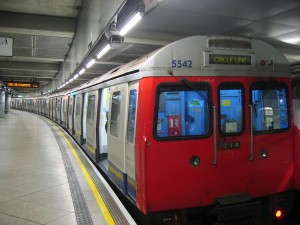4 historical occasions that shaped London
 Now we all know that London is one of the greatest places on Earth, with some of the most incredible attractions and hotels, including us here at DUKES Hotel and DUKES Bar (we are known as the ‘James Bond Martini Bar!’), of course.
Now we all know that London is one of the greatest places on Earth, with some of the most incredible attractions and hotels, including us here at DUKES Hotel and DUKES Bar (we are known as the ‘James Bond Martini Bar!’), of course.
But London isn’t famous only for the here and now – the long legacy of historical events plays a huge role in why the city is loved so much and is such a huge attraction for visitors.
Although not all of the events covered below were positives, they’ve all played a role in shaping perceptions of London and helped create the image of a city that continues to draw so many visitors from around the world.
1. Guy Fawkes Gunpowder Plot (1605)
All British school children know the story of the plot to kill King James I by a group of people thought to be led by explosives expert Guy Fawkes.
The plan was to blow up the Houses of Parliament whilst it was filled with not only the King, but also everyone else in there when they were opening Parliament on the 5th November.
Fortunately, the plot was unsuccessful – but could you imagine if they had actually blown up the Houses of Parliament?
If nothing else we wouldn’t have the beautiful sight and attraction we have today!
2. Queen Victoria crowned (1838)
Still in her teens, Victoria was crowned Queen of England after King William died of heart failure at the age of 71.
Her coronation day began at Buckingham Palace when the firing of the cannon in the park started the celebrations – unfortunately for Victoria, our nearby DUKES Hotel wasn’t open then for her to enjoy our extraordinary offerings.
This was to be the last coronation in Britain for 64 years, when Queen Victoria died and her son, Edward VII, took over in 1901.
3. London Underground opens (1863)
The world’s first metro / underground / subway (depending on where you’re from) system had its first journey on January 10th 1863, covering the four miles from Bishop’s Road to Farringdon Street.
As you can imagine, the construction of the underground caused a lot of problems in the 1800s, not least with the traffic congestion it caused above ground whilst work was undertaken.
Within a short time, the line was carrying 26,000 passengers each day. That doesn’t sound a lot compared to the 3 million passengers a day now, but the world has changed a lot since the invention of the London Underground.
Now, there are more than 250 miles of underground line serving 275 stations.
4. England win the World Cup (1966)
With the current football World Cup reaching its finale, we thought we would take this opportunity to mention the time that football ‘came home’, in July 1966.
This is the one and only time that our great nation has ever been victorious in football’s biggest competition; England got to play all of their games at Wembley stadium, with a reported 98,000 there to see England beat West Germany 4-2 in the final.
So we urge you to visit the city very soon, and suggest you take the time to explore some of the city’s history when you do. Our location right in the heart of Mayfair is perfect to get your visit to London underway.
